Spotlight:
student and alumnx art spaces, collectives and organizations
Profile: Flying Canvas Studio with Alumnx Jeanette Staley (W 20)
Jeanette Staley is a research-based artist. Her research began informally as a young artist interested in understanding how she was personally and vicariously affected by the contemporary culture she was immersed within. Processing inequality and injustice through allegory and collage, she invites the viewer to question their own cultural assumptions and idealized gender expectations. Her work can be found in galleries in Vermont and the Boston area.
In 2001 she created Flying Canvas Studio.
What is your mission?
To infiltrate the patriarchal consumerist culture with beautiful things for the home, I like to call, “ironic home decor”.
I have been a collage artist for over 30 years now. My work is subliminal and covert. I paint realistic still life scenes with vessels and fruit over a background of ephemera including bits of old wallpaper and book pages and headlines taken from the daily news.
The patriarchal dysfunctions of our culture such as homelessness, poverty, misogyny, racism and violence are juxtaposed with ancient stories from Greek mythology, Dante’s Divine Comedy, Rumi, etc in my attempt to convey the timelessness and inhumanity of human struggles.
Where, and how, did you start?
I was working in the MetroWest area of Massachusetts, running a studio/gallery/event/classes and workshop/maker space for over a decade in addition to my own studio practice. I began painting small studies of pears because I love their shape and color and these quickly became a favorite of the Boston area galleries I was working with during that time.
Upon moving to Vermont in 2001 as a single mother with a 4 year old daughter, the agrarian culture that surrounds my little hamlet became the focus of my small studies. I paint the harvests of my garden and the farms and orchards that surround my home. In addition to selling the original oil paintings, I sell prints and have been using the images to create fabric designs that are used to make scarves, accent pillows, table linens, tiles and dish towels.
I bought a house that had not been updated since the Eisenhower administration. My backyard is an early 20th c. archeological dig site. But I refer to it as charming. It needed some TLC. With dogs, cats, kids, and a small farmette assembling of goats and chickens, the tired and worn floors were best covered with floor cloths, as refinishing was expensive and seemed futile against the local population. Soon thereafter, floor cloths became the cornerstone of Flying Canvas Studio. They are commissioned by homeowners for specific home decor including color preference, design and size.
I also teach floor cloth painting workshops in my studio twice a year with small groups. I include a lunch created with local ingredients: homemade delicata squash ravioli with a garlic and rosemary cream sauce over braised kale, local cheese, and a pear tart for dessert, for example. I work with each member to create a design with the components and color that work for their space. Each guest leaves with a finished 2’ x 3’ floor cloth, a full tummy and new friends, we really have a lot of fun.
What’s next for Flying Canvas Studio?
My latest studio projects have focused on rewriting folktales and Greek myths from a feminist perspective, specifically addressing the relationships between women. As I write, I create a visual representation which then become paintings and new fabric designs that are used to create dish towels, table linens, and scarves – ironic home decor.
I am interested in creating an artist residency program that interacts with the local economy, for example, farm-provided ingredients, restaurants, and visits to artist studios. This might be a floor cloth workshop where participants can stay overnight or a writing workshop led by someone else. I envision local artists, as well as participants from afar, gathering to learn new skills, develop new ideas, and share perspectives and personal experiences.
Community is very important to me as an artist, a business person, and a human being. I collaborate with local artists to build a more supportive economy by combining our marketing efforts, inviting new artists into the community and participating in open studio events. During COVID lockdown, our artist community continued our regular meetings over Zoom. Realizing the importance of inter/net connectivity, we worked together to create a logo for our area, social media presence, and started working with a marketing specialist to increase our visibility and connection using a COVID related business grant. During this time I was also able to build my website and to create a store to increase sales and awareness of my work beyond my local area.
In this series, Goddesses are represented as their bird symbols to explore inter-dependency that women practice in community.
In Saving Perspehone, Aphrodite offers the freedom of choice to Persephone as she is encouraged to escape her binary internment.
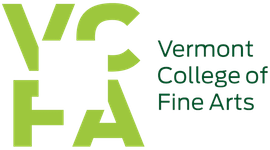
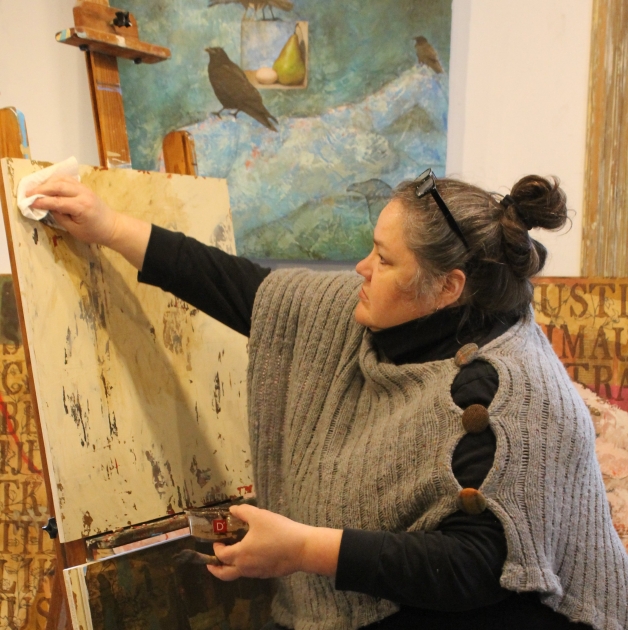
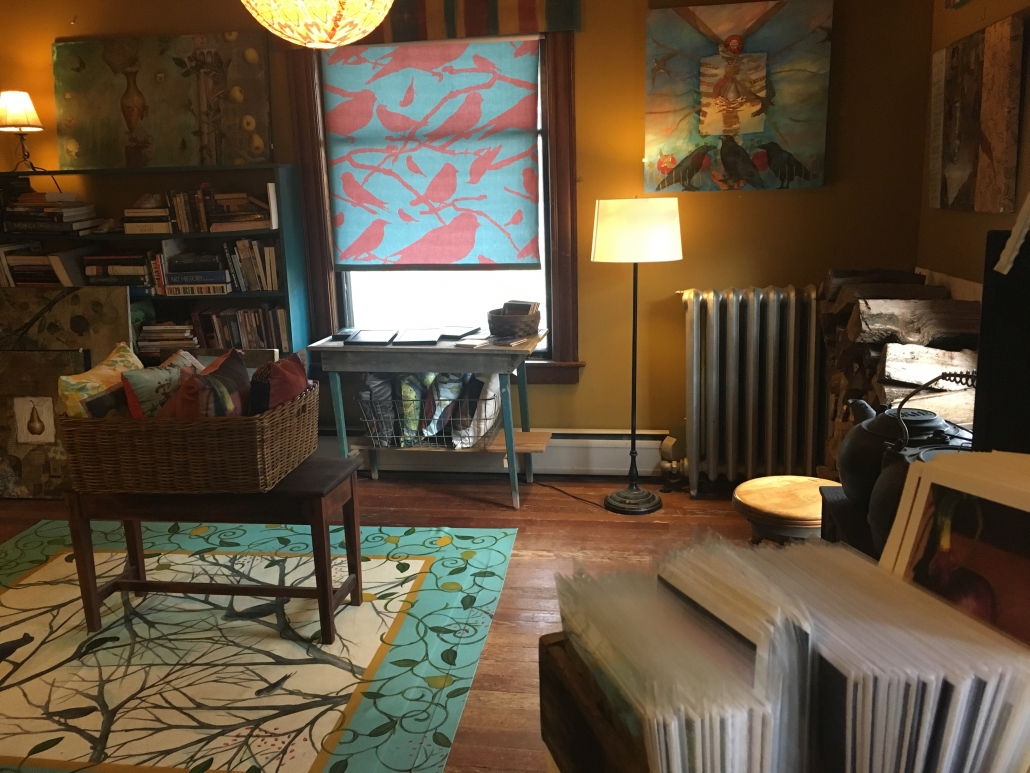
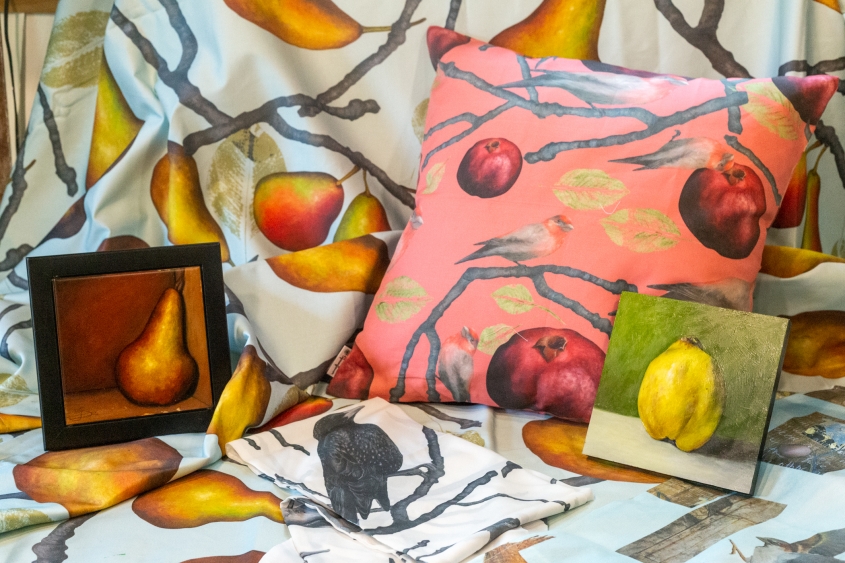
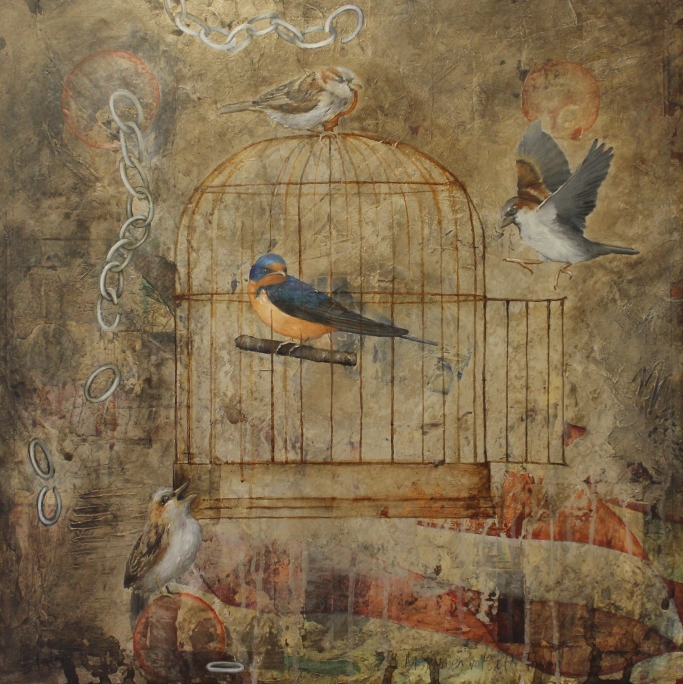
 Alumnx: Ross Sheehan (S 20) South Burlington & Vergennes VT, United States
Alumnx: Ross Sheehan (S 20) South Burlington & Vergennes VT, United States  Alumnx: Brian Narus (W20) Port Orchard, WA, United States
Alumnx: Brian Narus (W20) Port Orchard, WA, United States